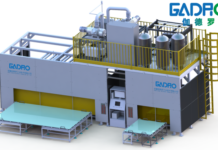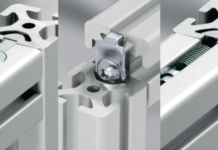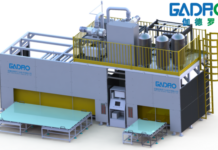In a spat on X with Danish astronaut Andreas ‘Andy’ Mogenson, Elon Musk called him an ‘idiot and fully retarded’ and has found himself again between a Feud.

Elon Musk, the CEO of SpaceX, has found himself in a heated exchange with former International Space Station (ISS) commander Andreas Mogensen over the prolonged stay of two NASA astronauts aboard the ISS. The dispute, which unfolded on Musk’s social media platform X, has sparked a broader debate about the future of the ISS and the political dynamics surrounding space missions.
The conflict began when Musk accused the Biden administration of deliberately delaying the return of astronauts Suni Williams and Butch Wilmore for political reasons. In a recent Fox News interview, Musk claimed that his company, SpaceX, had offered to bring the astronauts back months ago but was rebuffed by the administration. Musk asserted that the delay was politically motivated, a charge Mogensen swiftly refuted
Responding to Musk’s claims, Mogensen called them a ‘lie’ and criticized Musk for spreading misinformation while simultaneously accusing the mainstream media of dishonesty. This prompted an aggressive response from Musk, who labeled Mogensen an ‘idiot’ and used another derogatory term to dismiss the astronaut’s rebuttal. Musk maintained that the Biden administration rejected his offer to expedite the astronauts’ return and insisted that political factors were at play.
The two astronauts in question, Williams and Wilmore, were part of Boeing’s first crewed Starliner mission launched in June of the previous year. Initially planned as a short 8-to-10-day mission, their stay was extended due to technical concerns about the Starliner capsule. NASA eventually decided to return the capsule to Earth without a crew in September and incorporated Williams and Wilmore into SpaceX’s Crew-9 mission. This decision reflects NASA’s cautious approach to astronaut safety and its commitment to thoroughly vetting new spacecraft before using them for human transport. The extended stay, while unexpected, allowed for further testing and assessment of the Starliner capsule’s systems, ensuring future missions could proceed safely.
Mogensen, while acknowledging Musk’s contributions to space exploration through SpaceX and Tesla, pushed back against the claim that the astronauts were abandoned. He emphasized that their return on the Dragon capsule stationed at the ISS had been the established plan since September and pointed out that SpaceX was not deploying a separate rescue mission. This statement highlights the fact that NASA’s decisions were based on technical and logistical considerations rather than political motives. Mogensen’s measured response also suggests that while private companies like SpaceX play a crucial role in modern space exploration, they must work within the parameters set by governmental agencies to ensure the safety and success of missions.
The argument took a new turn when Musk called for the decommissioning of the ISS, asserting that the station had ‘served its purpose’ and that it was time to focus on missions to Mars. This statement raised eyebrows, especially considering that SpaceX holds the contract to build the U.S. Deorbit Vehicle responsible for bringing the ISS down safely in 2030. Musk’s comments sparked speculation about whether he was advocating for an accelerated deorbit timeline. This stance reflects Musk’s long-standing ambition to prioritize interplanetary exploration and his belief that resources should be redirected toward advancing human presence on Mars. However, it also raises concerns about the potential disruption of ongoing research and international collaboration aboard the ISS.



















